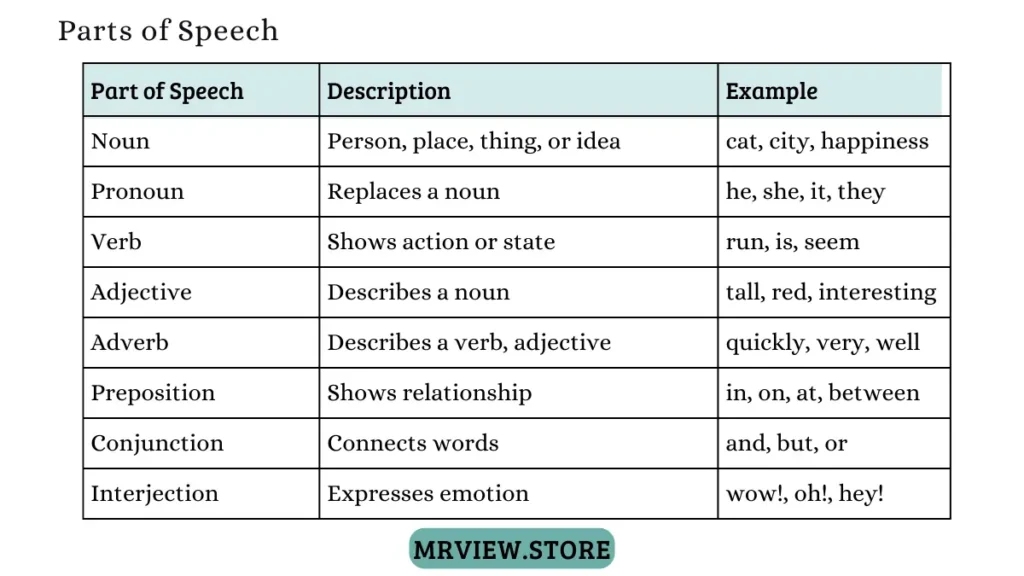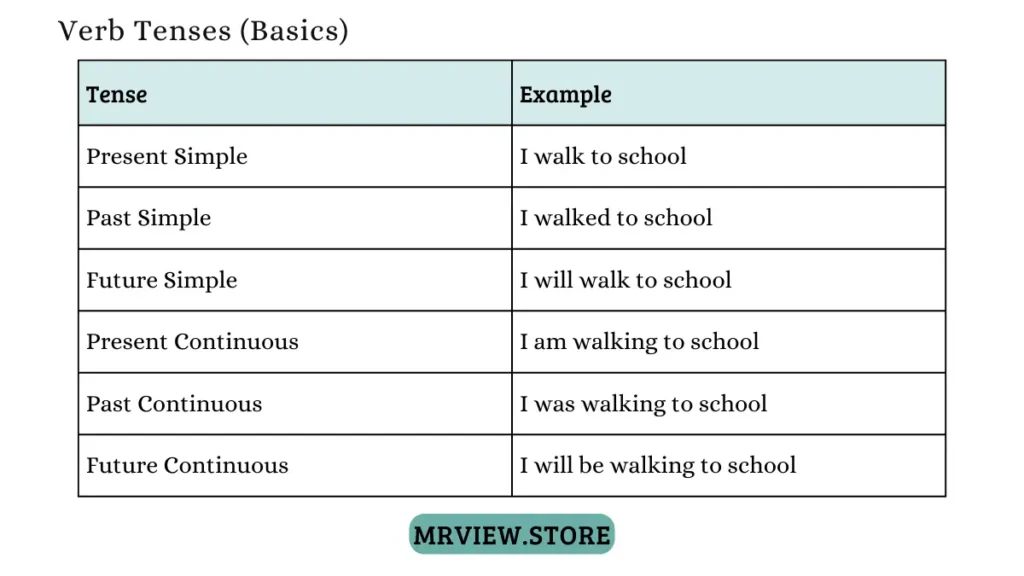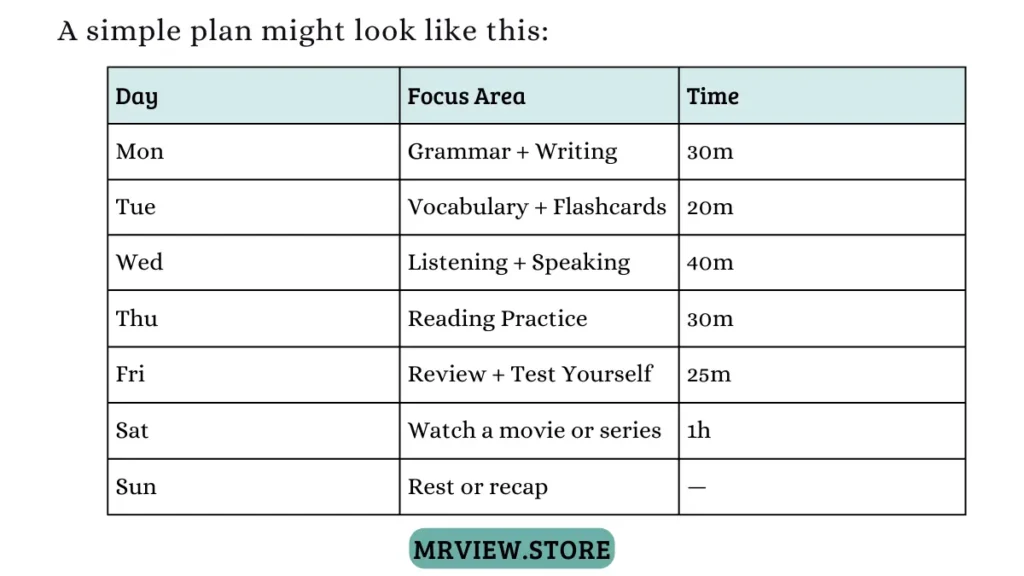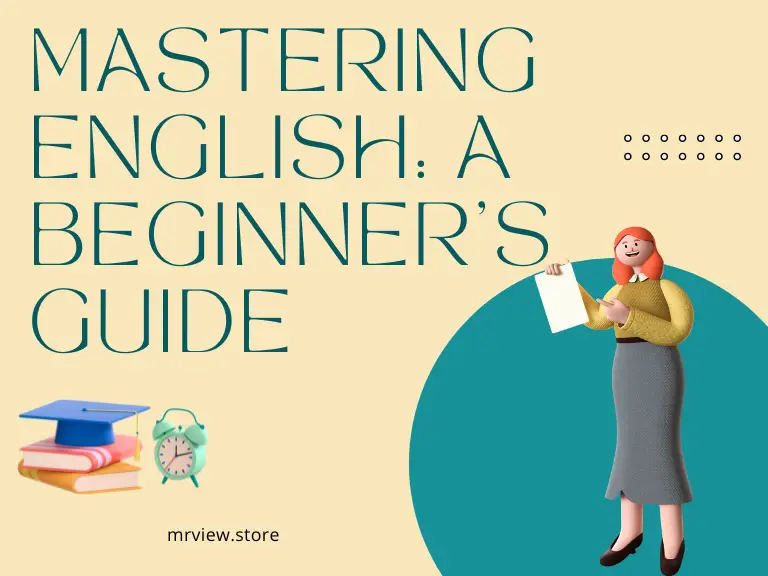Wanna learn English but don’t know where to start? You’re not alone! Mastering English might seem like climbing a mountain at first—but trust me, once you take that first step, you’ll be surprised at how fun and doable it can be. Whether you’re learning for school, work, travel, or just for the thrill of understanding another language, this guide is your all-in-one ticket to getting started. From building vocabulary and grammar foundations to speaking confidently and understanding cultural quirks, we’ll cover it all.
This isn’t your typical dry language guide either—we’ll keep it light, practical, and beginner-friendly, with tips you can actually use in real life. So, if you’re ready to take the leap, let’s roll into Part 1 and kick things off with the building blocks of language: vocabulary.
Building a Strong Vocabulary
Understanding the Role of Vocabulary
Ever felt like you’re stuck in a conversation just because you didn’t know the right word? That’s exactly why vocabulary is your first stepping stone in mastering English. It’s the key to understanding what you hear and say—and believe it or not, you don’t need to know all the words, just the right ones. Start with the essentials—words used in daily life—and you’ll be able to string sentences together sooner than you think.
There are two types of vocabulary: active vocabulary, which you use when you speak or write, and passive vocabulary, which you recognize while reading or listening. Beginners often know more words than they realize—they just need the confidence to use them. So, let’s talk strategy.
Strategies for Vocabulary Acquisition
You don’t need to memorize the entire dictionary (whew!). Instead, try these tried-and-true methods:
1. Use Flashcards and Spaced Repetition
Flashcards are a classic for a reason—they work! Use apps like Anki to help you remember new words using spaced repetition. This technique spaces out reviews just enough so the words really stick.
2. Learn Words in Context
Don’t just memorize a word—see how it’s used in real life. Watch short videos, read dialogues, or check out Effective Vocabulary Building Strategies to learn how words function in sentences. Context helps with meaning and retention.
3. Use Word Lists Wisely
Starting with lists like the General Service List (GSL) is super helpful. These lists focus on the most frequently used words in English—so they’re practical and relevant for everyday conversations.
4. Label Everything
Grab some sticky notes and go wild! Label items around your home with their English names—fridge, mirror, chair, you name it. Seeing the words often helps them sink in naturally.
5. Keep a Personal Vocabulary Journal
Whenever you come across a new word, jot it down along with its meaning and a sentence using it. Review your journal daily, and try using those words in conversations.
Mastering Basic English Grammar

Why Grammar Matters for Beginners
Okay, let’s be honest—grammar gets a bad rap. It’s often seen as stiff, confusing, and well… kinda boring. But here’s the truth: grammar is just the structure that helps us communicate clearly. You don’t need to be perfect—you just need to be understood. Once you’ve got a handle on the basics, everything else (like writing and speaking) starts to fall into place.
Plus, knowing how English sentences are built helps you avoid common mistakes and express yourself more naturally. So instead of thinking of grammar as a roadblock, think of it as the secret blueprint behind every good conversation.
Essential Grammar Rules to Get You Started
Here’s a breakdown of the must-know grammar concepts for any English beginner:
1. Sentence Structure Basics
Most English sentences follow a simple pattern: Subject + Verb + Object.
- I eat apples.
- She reads books.
Learning this structure is like learning the beat of a song—it makes everything flow better.
2. Verb Tenses Made Simple
Tenses tell us when something happens. Start with the big three:
- Present Simple: I study English.
- Past Simple: I studied yesterday.
- Future Simple: I will study tomorrow.
No need to memorize all 12 tenses right away. Just focus on the basics, and build from there.
3. Articles: A, An, and The
These tiny words can be tricky! Use:
- A/an for something general: I saw a cat.
- The for something specific: The cat was sleeping.
It’s a small rule with a big impact on sounding fluent.
4. Common Prepositions
Words like in, on, at, and to may seem harmless, but they can totally change meaning. For example:
- In the room vs. On the table
Start by learning how they’re used in places and time expressions, like at 3 PM or in the morning.
5. Pronouns and Possessives
Know your he, she, it, and they. Also get familiar with possessives like my, your, their. These are the words you’ll use every single day.
Resources to Practice Grammar
Don’t worry—you don’t have to figure it all out on your own. Use beginner-friendly sites like BBC Learning English – Grammar for free lessons and exercises that make grammar easier to digest.
And don’t forget, practice is the real MVP. Try forming short sentences about your daily routine using the grammar rules above.
Pronunciation and Accent Clarity
The Importance of Good Pronunciation
Let’s be real—pronunciation can make or break a conversation. You might know all the right words, but if people can’t understand you, things can get awkward fast. That said, you don’t need to speak like a native speaker to be understood. What you do need is clear, consistent pronunciation.
Why does it matter? Because pronunciation is the bridge between your thoughts and other people’s ears. Getting your sounds right helps you feel more confident and makes chatting with others way smoother.
Understanding English Sounds
English has some weird sounds—ones that don’t even exist in other languages. Let’s break down a few common ones that trip people up:
- “Th” sounds (like in think or this) – Try placing your tongue gently between your teeth.
- Short vs. Long vowels – Ship and sheep might sound the same to you at first, but they mean totally different things!
- Silent letters – Yup, English loves to throw in letters it doesn’t pronounce. Like the “k” in know or the “b” in lamb.
Practice these slowly and clearly. Trust me, you’ll get the hang of it.
How to Improve Your Accent (Without Stressing Out)
Worried about having an accent? Don’t be! Everyone has one, and it’s totally okay. But if you want to make your speech clearer, here’s how:
1. Listen and Imitate
Watch English movies, YouTube videos, or podcasts. Listen closely and try to mimic how words are spoken. Start with short phrases like:
- “What time is it?”
- “How are you?”
Repeat them until they roll off your tongue naturally.
2. Use Tongue Twisters
These are fun and super helpful! Try saying:
“She sells sea shells by the sea shore”
Fast? Maybe not. Fun? Definitely. Helpful? Absolutely.
3. Record Yourself
Sometimes we don’t realize how we sound until we hear it. Record yourself reading out loud, then play it back. Compare it with a native speaker and adjust slowly.
Tools to Practice Pronunciation
Need some extra help? No worries. Here are a couple of beginner-friendly tools:
- Forvo – Hear how real people pronounce words in English.
- YouGlish – Search a word and hear it spoken in real videos.
- Google Translate – Not perfect, but useful to hear quick pronunciations.
Building Essential Vocabulary
Why Vocabulary Matters
Imagine trying to build a house without bricks—it’s the same with speaking English without vocabulary. Words are your tools. The more you know, the more confident you’ll feel expressing yourself.
But here’s the kicker: you don’t need to learn every word in the dictionary. Start with what you’ll use most in daily conversations and situations.
Top Everyday Words and Phrases for Beginners
Let’s keep it simple. Here are some must-know categories of words and expressions:
1. Greetings and Introductions
- Hello, Hi, Good morning
- How are you?
- My name is…
2. Asking for Help or Info
- Can you help me?
- What does this mean?
- Where is the bathroom?
3. Shopping & Food
- How much is this?
- I’d like a coffee, please.
- Do you accept credit cards?
4. Time & Dates
- What time is it?
- Today, tomorrow, yesterday
- Days of the week and months
These words and phrases are like gold when you’re starting out. Use flashcards or apps like Anki or Memrise to help you memorize them faster.
Themed Vocabulary Lists to Boost Learning
If you want to go a step further, group words by theme. Why? Because it makes recall easier and builds strong mental connections.
- Family – mother, father, sister, cousin, etc.
- Weather – sunny, rainy, windy, cold
- Emotions – happy, sad, tired, excited
- Travel – airport, luggage, passport, hotel
Pick a theme each week and practice 5–10 new words from that list. Don’t overwhelm yourself—small steps work best!
How to Practice Vocabulary Effectively
Here’s where the magic happens—turn learning into doing.
Make Your Own Sentences
Don’t just memorize—use the word. For example:
Word: hungry
Sentence: “I’m really hungry. Let’s eat!”
Use Flashcards or Apps
Apps like Quizlet let you practice vocab through games and tests. You can also make your own physical flashcards if you’re more of a pen-and-paper learner.
Practice in Real Conversations
Whether it’s a language partner, a tutor, or even speaking to yourself (yes, it works!), using new words in context makes them stick like glue.
Common Beginner Mistakes to Avoid
- Don’t try to learn too many words at once. You’ll forget them fast.
- Avoid only memorizing without using the word.
- Don’t get stuck on perfect pronunciation—focus on communication first.
Understanding Basic English Grammar
Why Grammar Isn’t Scary (We Promise!)
Grammar often sounds intimidating—but here’s the truth: basic English grammar is totally manageable. Think of it as a recipe. Once you know the ingredients and how they mix, you can whip up sentences like a pro.
Plus, you don’t need to master all the rules to get started. You just need the essentials—and that’s exactly what we’re covering here.

Sentence Structure: The Core Formula
Let’s start with the classic English sentence formula:
Subject + Verb + Object
Examples:
- I eat apples.
- She likes music.
- They play soccer.
See how neat that is? Just three parts and boom—you’ve got a sentence.
Verb Tenses Made Simple
Tenses can trip up beginners, but here’s a quick and easy guide to the most-used ones:
1. Present Simple
Used for facts and regular actions.
- I study English.
- She goes to school.
2. Past Simple
Used for things that already happened.
- I watched a movie.
- We played football yesterday.
3. Future Simple
Used for future actions.
- I will call you later.
- They will travel next week.
Notice how verbs change with time? That’s tense in action.
Pronouns and Articles
Personal Pronouns
These replace names in a sentence:
- I, you, he, she, it, we, they
Example: He is my friend.
Articles
The words “a,” “an,” and “the” go before nouns:
- a cat, an apple, the sun
Tip: Use “a” before consonants and “an” before vowels.
Prepositions and Conjunctions
Prepositions show direction, place, or time:
- in, on, at, under, between
Example: The book is on the table.
Conjunctions connect ideas:
- and, but, because, so
Example: I’m tired but happy.
Common Grammar Mistakes to Watch Out For
- Mixing up your and you’re
- Forgetting “-s” for third-person verbs: He walk ❌ → He walks ✅
- Using the wrong tense: I go to school yesterday ❌ → I went to school yesterday ✅
Practice Makes Progress
Grammar apps like Grammarly and BBC Learning English offer bite-sized lessons you can use every day. Try building sentences with the vocabulary you learned earlier. The more you practice, the more natural it’ll feel.
Practicing Speaking and Listening Skills
Why Speaking and Listening Go Hand-in-Hand
Let’s face it—language is communication. You don’t learn English just to pass a test. You want to chat, express yourself, watch movies, understand lyrics, and connect with people. That’s why listening and speaking are so important.
When you listen well, you learn how native speakers use rhythm, intonation, and expressions. And when you speak often, your confidence soars, and grammar rules start to stick naturally.
Daily Listening Practice Ideas
🎧 Listen Like a Language Detective:
Here’s how to make the most of your listening time:
- Watch TV shows or YouTube videos with subtitles (like BBC Learning English or Speak English With Mr. Duncan).
- Listen to English music and try to write down the lyrics.
- Tune in to beginner podcasts such as The English We Speak or ESL Pod.
📝 Pro tip: Listen twice! First for understanding, then again to catch new words or phrases.
Speaking Without Fear
Let’s be real—speaking can be scary. But you won’t improve if you don’t start speaking. Even talking to yourself in English can help!
💬 Easy Ways to Practice Speaking:
- Shadowing technique: Repeat after a native speaker from a video or audio clip.
- Record yourself reading a paragraph and listen back.
- Talk to language exchange partners on platforms like HelloTalk, Tandem, or Speaky.
- Join online speaking clubs or Zoom meetups for English learners.
Even just 10 minutes a day makes a huge difference over time.
Useful Speaking Phrases to Get You Started
- “Can you repeat that, please?”
- “I’m learning English.”
- “How do you say ___ in English?”
- “Could you speak slowly?”
These survival phrases will help you stay in the conversation, even when you feel unsure.
How to Improve Pronunciation Naturally
Don’t worry about having an accent—every English speaker has one! But if you want to sound clearer, here’s what helps:
- Use tongue twisters (e.g., “She sells seashells…”).
- Break words into syllables and speak slowly.
- Record and mimic native speakers from movies, shows, or TED Talks.
Resources like Forvo let you hear native pronunciation of any word.
Track Your Progress
Make a habit tracker. Set mini goals like:
- “Practice speaking 5 minutes a day”
- “Listen to 2 podcast episodes a week”
- “Learn 10 new phrases from a show”
Staying consistent, even in small steps, will boost your fluency before you even realize it.
Creating a Personalized Study Plan and Staying Motivated
Why a Study Plan Matters
You’ve got the tools, the techniques, and the mindset—but what’s missing? A roadmap. Without a clear direction, it’s easy to get lost, overwhelmed, or… let’s be honest—bored. A well-structured study plan keeps you focused and makes learning English fun and achievable.
How to Build Your Own English Study Plan
Think of this as your learning GPS. Here’s how to set it up:
🎯 Step 1: Define Your Goal
What’s your “why”? Maybe you want to:
- Travel with ease
- Pass an English exam
- Get a better job
- Make new international friends
Write your reason somewhere you’ll see it every day.
📅 Step 2: Set a Daily or Weekly Routine
Consistency beats intensity. Choose how many minutes you’ll study each day and stick to it.

🛠 Step 3: Use a Mix of Resources
Balance is key! Mix up your input and output with:
- Apps like Duolingo or Babbel
- Podcasts and audiobooks
- Online quizzes or grammar checkers
- Journaling or chatting in English
And don’t forget to visit BBC Learning English for free, high-quality lessons.
FAQs
1. What is the best way to start learning English as a beginner?
The best way is to immerse yourself in the language daily. Start with simple vocabulary and basic grammar. Use mobile apps, watch English videos with subtitles, and try to speak a little every day. Consistency is key!
2. How long does it take to become fluent in English?
It depends on your dedication, time investment, and practice. On average, it can take anywhere from six months to a few years. The more you engage with English, the faster you’ll progress.
3. Can I learn English by myself at home?
Absolutely! With so many free online tools—like BBC Learning English and Cambridge English, plus YouTube, podcasts, and apps—you can create your own English learning environment at home.
4. What are the most important grammar rules to learn first?
Focus on:
- Present, past, and future tenses
- Subject-verb agreement
- Basic sentence structure (SVO: Subject-Verb-Object)
- Articles (a, an, the)
- Common prepositions (in, on, at)
5. How do I improve my English speaking skills quickly?
Practice speaking every day—even if it’s to yourself! Use language exchange apps, mimic native speakers from movies, and record your own voice. Don’t fear mistakes—they’re part of the journey.
6. Is it better to learn British or American English?
It depends on your goal. If you plan to travel, work, or study in the US, go for American English. For the UK or Commonwealth countries, learn British English. Either is fine—they’re mostly similar!
7. Should I focus on vocabulary or grammar first?
Start with basic vocabulary, since it helps you understand and express yourself. Then, gradually layer in grammar to form proper sentences. A mix of both works best!
8. How can I learn English faster and more efficiently?
- Set a clear goal
- Study consistently
- Surround yourself with English (TV, books, music)
- Practice with native speakers
- Test yourself regularly
Conclusion
Mastering a new language like English might seem like a giant leap, but trust me—it’s more like a series of small, rewarding steps. With consistent practice, the right tools, and a pinch of patience, you’ll be chatting, reading, and writing in English like a pro before you know it. Whether you’re learning for travel, career, or just for fun, starting with the basics and building strong habits will set you up for long-term success.
Don’t be afraid of mistakes—they’re signs you’re trying, learning, and improving. Keep those ears open, mouths moving, and eyes on your goals. The world speaks English, and now, so can you.
